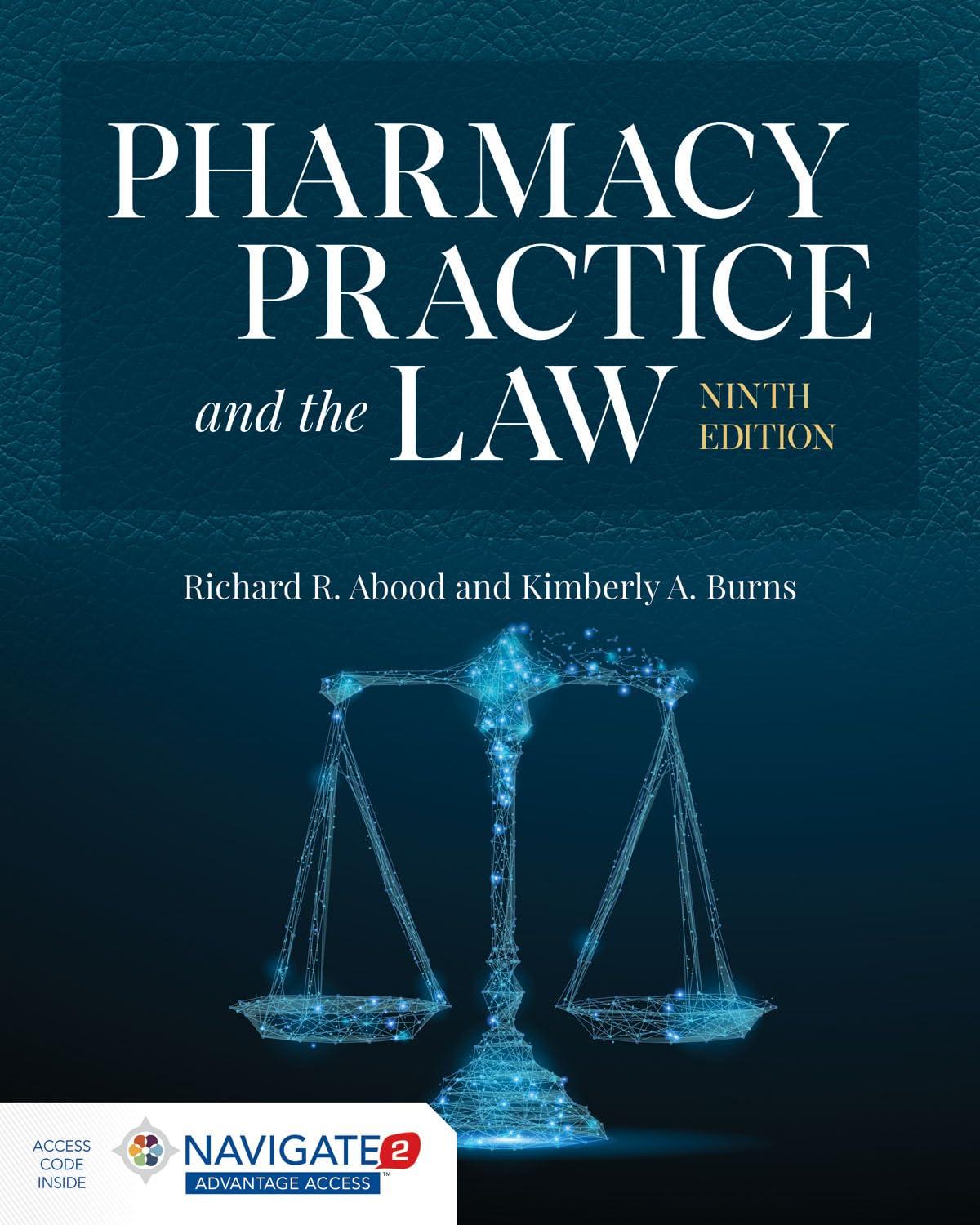Even though this case is not an FDCA case and is really about damages, it highlights important
Question:
Even though this case is not an FDCA case and is really about damages, it highlights important issues under the FDCA, including substitution without authorization and the issue of generic and therapeutic substitution. In this case, the pharmacist substituted what he thought was a generic equivalent to the drug prescribed, even though the prescriber refused to authorize substitution. The substituted drug was not a generic equivalent and the patient sustained harm. This case not only demonstrates the importance of making certain that the products are generic equivalents, but it also raises the broader issue of when might substitution present a greater risk of harm to the patient, and thus a greater risk of liability for the pharmacist. As you read this case, consider these issues:
Does your state allow substitution without prescriber authorization?
Can a pharmacist substitute if a patient requests but the physician refuses authorization?
Should a pharmacist be able to rely on software?
Are there any types of drugs in which generic substitution might cause harm to a patient and thus increase legal risk?
What is the difference between generic substitution and therapeutic substitution?
Does therapeutic substitution present a greater risk?
Step by Step Answer:

Pharmacy Practice And The Law
ISBN: 9781284154979
9th Edition
Authors: Richard R. Abood, Kimberly A. Burns





